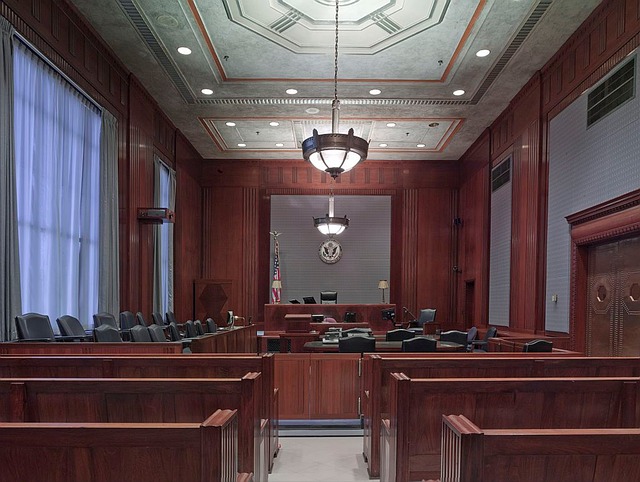Mastering Business Dispute Management: Legal Strategies for Success
Business disputes, from contracts to partnerships, require skilled legal guidance. A dispute resolut…….
Business Litigation and Dispute Resolution: Navigating the Legal Landscape
Introduction
In the intricate web of global business, conflicts are inevitable. The legal framework that governs these disputes—business litigation and dispute resolution—is a critical component of the corporate world, shaping the way businesses interact, negotiate, and settle differences. This comprehensive article will delve into the multifaceted aspects of business litigation and dispute resolution, exploring its historical context, global impact, economic considerations, technological advancements, policy and regulation, challenges and criticisms, with insightful case studies and a glimpse into its future prospects. Readers will gain a profound understanding of this vital legal domain and its significance in maintaining the balance between commerce, law, and international relations.
Understanding Business Litigation and Dispute Resolution
Business litigation and dispute resolution encompass the processes and legal mechanisms businesses use to resolve conflicts arising from commercial transactions, partnerships, or other business engagements. These processes range from informal negotiations to formal court proceedings, with alternatives such as arbitration and mediation. The core components include understanding the legal rights and obligations of parties involved, the application of relevant laws and regulations, and the use of effective communication strategies to achieve a resolution that is mutually acceptable.
Historically, dispute resolution has evolved from informal agreements in ancient marketplaces to sophisticated legal systems that handle complex commercial litigation. Today, it is a dynamic field influenced by economic shifts, technological advancements, and globalization, making it an essential discipline for businesses operating across jurisdictions.
Global Impact and Trends
The impact of business litigation and dispute resolution is felt worldwide, as international trade and investment create a network of interdependent relationships among nations. Key trends include the rise of cross-border disputes, the increasing complexity of commercial agreements, and the growing role of international arbitration centers. Different regions, such as North America, Europe, Asia, and emerging markets, have unique legal landscapes that influence dispute resolution practices. For instance, the United States has a robust system of federal and state courts, while countries like Singapore have positioned themselves as hubs for international arbitration.
Economic Considerations
Economically, business litigation and dispute resolution play a pivotal role in market dynamics. They influence investment patterns by providing a mechanism to enforce contracts and protect intellectual property rights. In economic systems where rule of law is strong, businesses can operate with more confidence, knowing that disputes will be resolved fairly and efficiently. Conversely, in environments with weak legal frameworks, the risk of undecided or biased outcomes can deter investment and stifle economic growth.
Technological Advancements
Technology has revolutionized business litigation and dispute resolution by enabling more efficient data collection, analysis, and communication. Blockchain technology, for example, offers a transparent ledger system that can reduce disputes related to contract performance. AI-driven analytics can predict outcomes based on historical data, aiding in decision-making processes. The future of technology in this field promises even more sophisticated tools for dispute prevention and resolution, including AI-assisted negotiation platforms and virtual reality environments for mediations.
Policy and Regulation
The policies and regulations that govern business litigation and dispute resolution are complex and vary by jurisdiction. International conventions like the New York Convention on the Recognition and Enforcement of Foreign Arbitral Awards provide a framework for cross-border enforcement of arbitration awards. Domestic laws, such as the U.S. Federal Arbitration Act or the UK’s Arbitration Act 1996, establish the rules for arbitration within their respective countries. These legal instruments are crucial for shaping the landscape and ensuring that dispute resolution mechanisms operate effectively.
Challenges and Criticisms
Business litigation and dispute resolution face several challenges, including concerns over bias in judicial systems, the high cost of litigation, and delays that can take years to resolve. Critics argue that the current system is opaque and favors larger entities with more resources. To address these issues, reforms are needed to make the system more accessible and fair for all parties. Strategies such as promoting alternative dispute resolution methods, investing in legal technology, and advocating for transparent policies can help overcome these challenges.
Case Studies
Several case studies illustrate the successful application of business litigation and dispute resolution. The Phillips v. Etesse case, which was resolved through international arbitration, exemplifies how complex cross-border disputes can be effectively managed. The Pulse/Zeneca patent litigation demonstrated the importance of intellectual property rights in pharmaceutical disputes. These cases provide valuable lessons on strategy, legal interpretation, and the importance of effective dispute resolution mechanisms.
Future Prospects
The future of business litigation and dispute resolution is likely to be characterized by increased reliance on technology, a push for more accessible and efficient processes, and an ongoing need for skilled professionals who can navigate the complexities of international commerce. Emerging trends such as the use of online dispute resolution (ODR) platforms and the potential impact of Brexit on European business litigation highlight the dynamic nature of this field.
In conclusion, business litigation and dispute resolution are critical components of the global legal system, essential for maintaining order in commercial transactions and fostering economic growth. As the world becomes more interconnected, the demand for effective dispute resolution mechanisms will continue to grow, necessitating a deep understanding of both the legal principles and the evolving technological landscape. This article has provided a comprehensive overview of this vital field, equipping readers with the knowledge to navigate its complexities with confidence.

Business disputes, from contracts to partnerships, require skilled legal guidance. A dispute resolut…….

Business litigation can be complex and costly. Engaging a dispute resolution lawyer specializing in…….

In the intricate world of commercial litigation, a dispute resolution lawyer is vital for businesses…….

Business litigation arises from various conflicts, demanding a deep understanding of both commerce a…….

Business partnerships often face disputes due to misunderstandings and misaligned goals, leading to…….

Business litigation is a complex process addressing disputes between companies, with common cases in…….

Business litigation can be a complex web, but engaging a dispute resolution lawyer or business dispu…….

Breach of contract cases are common in business litigation, requiring skilled dispute resolution law…….

Business litigation involves complex disputes requiring skilled dispute resolution lawyers specializ…….

Business litigation can cause significant harm to companies, but effective dispute resolution with a…….